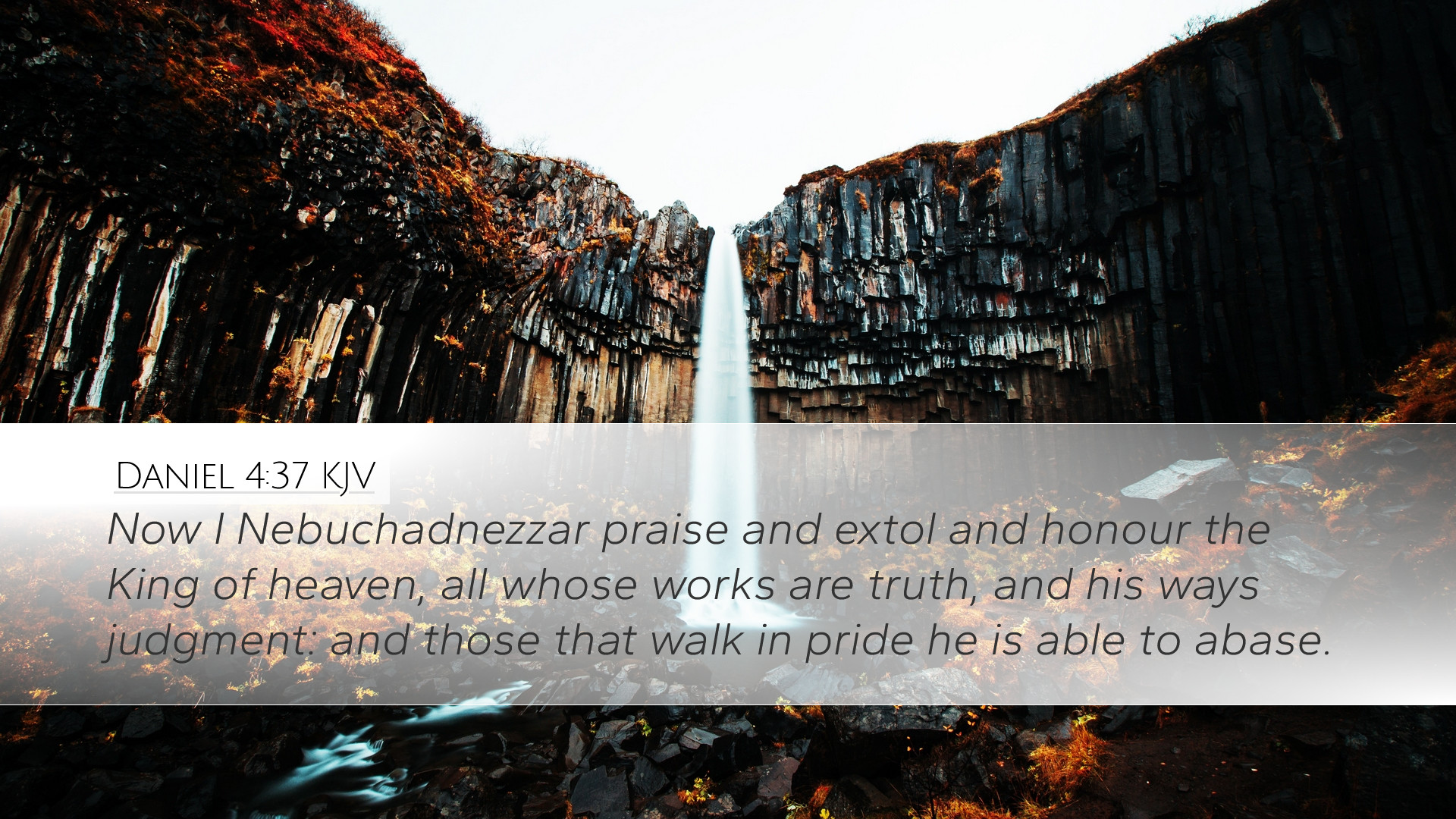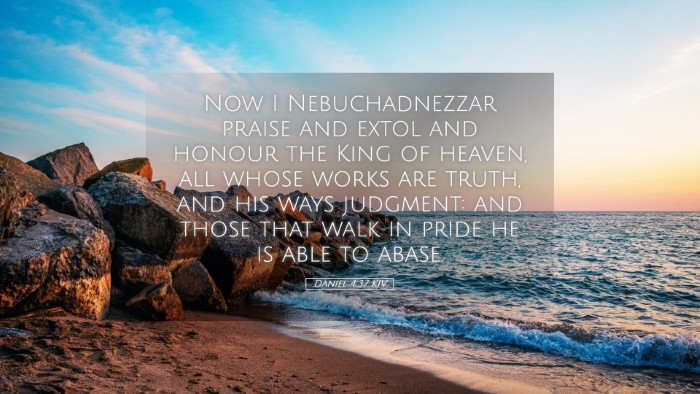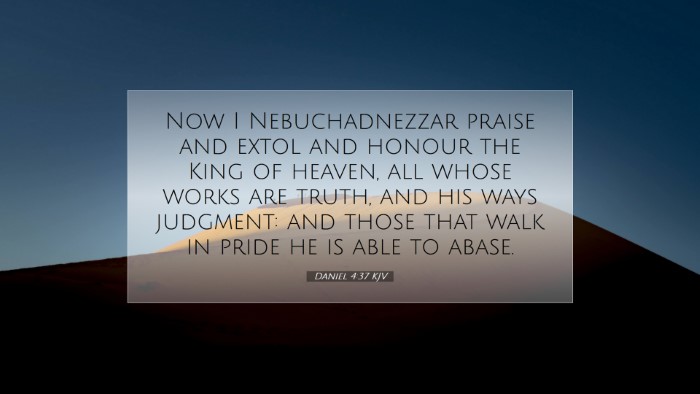Commentary on Daniel 4:37
Verse Context: Daniel 4:37 states, "Now I, Nebuchadnezzar, praise and extol and honor the King of heaven, all whose works are truth, and his ways judgment: and those that walk in pride he is able to abase." This declaration comes as a testimony to the greatness of God following Nebuchadnezzar’s humbling experience.
Introduction
This verse acts as a culmination of a profound transformation within Nebuchadnezzar, the king of Babylon. In earlier chapters, he exhibited pride and arrogance, ultimately leading to his downfall. The commentaries by Matthew Henry, Albert Barnes, and Adam Clarke offer rich insights into the spiritual journey encapsulated in this verse.
Insights from Commentaries
Overall Theme
Daniel 4:37 serves as a recognition of God's sovereignty and the consequences of pride. It emphasizes the notion that God is supreme over all creation and has the authority to humble those who are exalted.
Matthew Henry's Commentary
- Transformation Through Trials: Henry elucidates that God orchestrated events in Nebuchadnezzar's life to lead him to this moment of praise. His previous arrogance resulted in a humbling that stripped him of his pride, thus opening his eyes to God's glory.
- Praise and Worship: The king's response is to "praise and extol" God, highlighting the essential nature of recognizing God's authority. Henry suggests that true praise is the nature of those who have experienced God's workings in their lives.
- The Nature of God’s Works: Henry emphasizes that God's works are "truth," which implies that they are unchangeable and trustable. The acknowledgement that God’s ways are based on judgment reflects not only His justice but also His righteousness and sovereignty over all nations.
Albert Barnes' Commentary
- The Sovereignty of God: Barnes points out that the verse encapsulates Nebuchadnezzar's understanding of divine sovereignty after his restoration. His assertion underlines the importance of acknowledging God's rule over the affairs of humanity.
- The Consequence of Pride: Barnes notes that the phrase "those that walk in pride he is able to abase" serves as a warning against pride. It reflects the biblical truth that pride precedes a fall (Proverbs 16:18).
- The Divine Nature: Barnes highlights the attributes of God, particularly His truth and judgment. This acknowledgment indicates Nebuchadnezzar's transformation from attributing his victories solely to his power to recognizing his dependence on God.
Adam Clarke's Commentary
- Personal Experience of Humility: Clarke emphasizes that Nebuchadnezzar's declaration stems from personal suffering and restoration. His ordeal was necessary for him to understand the greatness of God, marking a shift from self-aggrandizement to divine reverence.
- Testament of God’s Power: Clarke discusses the liturgical aspect of Nebuchadnezzar’s proclamation. It serves as a testament to God’s power and majesty, inviting all to recognize God's authority.
- Application for Believers: Clarke encourages readers to reflect on their lives, considering how pride can lead to spiritual folly. He calls for a humility that acknowledges God’s sovereignty in every facet of life.
Theological Implications
This verse presents several theological implications worthy of contemplation:
- The Nature of God: The verse reveals key attributes of God—His truth, justice, and ability to humble. These qualities are foundational for understanding God's relationship with humanity.
- The Danger of Pride: The thematic warning against pride serves as a critical lesson for leaders and believers. It highlights the need for humility and reliance on God’s sovereignty.
- God’s Redemption: Nebuchadnezzar’s transformation from pride to praise illustrates the redemptive qualities of God. It demonstrates that no one is beyond the reach of God's grace.
Conclusion
Daniel 4:37 is not merely a historical account; it is a profound spiritual lesson for all who follow God. The insights from the commentaries reveal that true wisdom recognizes God’s authority over human affairs. For pastors, students, theologians, and Bible scholars, this verse implores an acknowledgment of God's majesty, an admission of personal frailty, and a desire for a heart that sings praises to the One who truly reigns.


